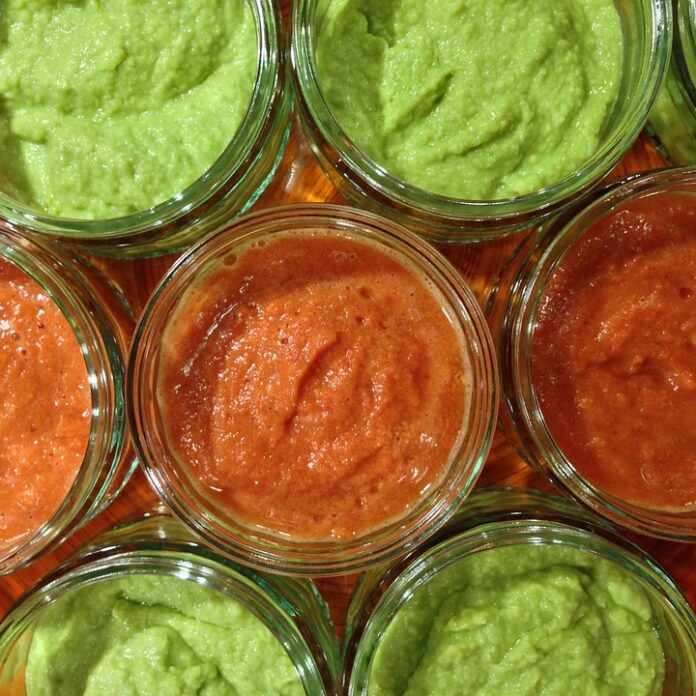The Business of Sauces and How Entrepreneurs Are Expanding the Industry
The sauce industry is a lucrative and diverse sector within the food and beverage market, with entrepreneurs playing a significant role in driving innovation and growth. From classic staples like ketchup and mustard to exotic flavors like sriracha and chimichurri, sauces play a crucial role in enhancing the taste of various dishes and cuisines. In this report, we will explore the business of sauces, the key players in the industry, and how entrepreneurs are making their mark in this competitive market.
The Sauce Industry Landscape
The global sauce market is vast and continues to grow steadily, driven by changing consumer preferences, increased demand for convenience foods, and the rise of international cuisines. According to a report by Market Research Future, the global sauce market is expected to reach a value of $70.4 billion by 2023, with a compound annual growth rate (CAGR) of 4.7% from 2017 to 2023.
In the United States alone, the sauce market is valued at over $23 billion, with categories like barbecue sauce, hot sauce, and mayonnaise experiencing significant growth. The increasing popularity of ethnic cuisines and the demand for healthier, natural ingredients have also fueled the growth of specialty and gourmet sauces.
Key Players in the Sauce Industry
The sauce industry is highly competitive, with both established brands and new entrants vying for market share. Some of the leading players in the global sauce market include:
1. The Kraft Heinz Company: Known for iconic brands like Heinz ketchup and A.1. steak sauce, The Kraft Heinz Company is a major player in the sauce industry, with a strong presence in markets worldwide.
2. McCormick & Company: A global leader in spices, seasoning mixes, and condiments, McCormick & Company offers a wide range of sauces under brands like Frank’s RedHot and French’s.
3. Tabasco: Produced by McIlhenny Company, Tabasco sauce is a household name in the hot sauce category, known for its signature spicy flavor and distinctive packaging.
4. Cholula: This Mexican hot sauce brand has gained popularity in the United States and beyond, known for its unique blend of peppers and spices.
Entrepreneurs Making Waves in the Sauce Industry
While established brands dominate the sauce market, entrepreneurs are carving out their niche with innovative flavors, clean labels, and unique marketing strategies. From small-batch producers to food truck vendors, these entrepreneurs are reshaping the sauce industry and capturing the attention of consumers looking for something different.
One such entrepreneur is Mike Hultquist, founder of the popular hot sauce brand, “Sauce Bae.” With a focus on natural ingredients and bold flavors, Sauce Bae has gained a loyal following among hot sauce enthusiasts and foodies alike. Hultquist’s creative approach to marketing, including collaborations with influencers and social media campaigns, has helped Sauce Bae stand out in a crowded market.
Another entrepreneur making waves in the sauce industry is Lisa Murphy, founder of Salsaology. Inspired by her Mexican heritage, Murphy creates artisanal salsas and cooking sauces that combine traditional flavors with a modern twist. Through partnerships with local farmers and a commitment to sustainability, Salsaology has built a reputation for quality and authenticity in the gourmet sauce market.
Trends Shaping the Future of the Sauce Industry
As consumer preferences continue to evolve, several trends are shaping the future of the sauce industry:
1. Health and Wellness: Consumers are increasingly seeking sauces that are free from artificial ingredients, preservatives, and excessive sodium. Brands that offer clean label products with natural, organic ingredients are likely to see continued growth.
2. Ethnic Flavors: The growing popularity of international cuisines like Korean, Thai, and Middle Eastern has led to an increased demand for ethnic sauces and condiments. Entrepreneurs who can tap into these flavor trends are well-positioned for success.
3. E-Commerce and Direct-to-Consumer Sales: With the rise of online shopping and the convenience of direct-to-consumer sales, more sauce brands are bypassing traditional retail channels and selling their products directly to consumers. This allows entrepreneurs to build a loyal customer base and control their brand messaging.
In conclusion, the sauce industry offers a wealth of opportunities for entrepreneurs to innovate, disrupt, and succeed. By staying ahead of trends, focusing on quality ingredients, and connecting with consumers on a personal level, entrepreneurs can carve out their niche in this competitive market. As the demand for unique, flavorful sauces continues to grow, the future looks bright for those willing to take a chance and spice things up in the business of sauces.




